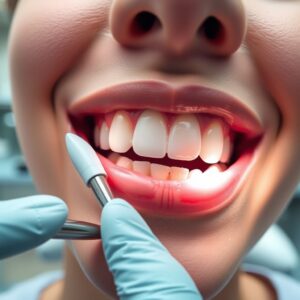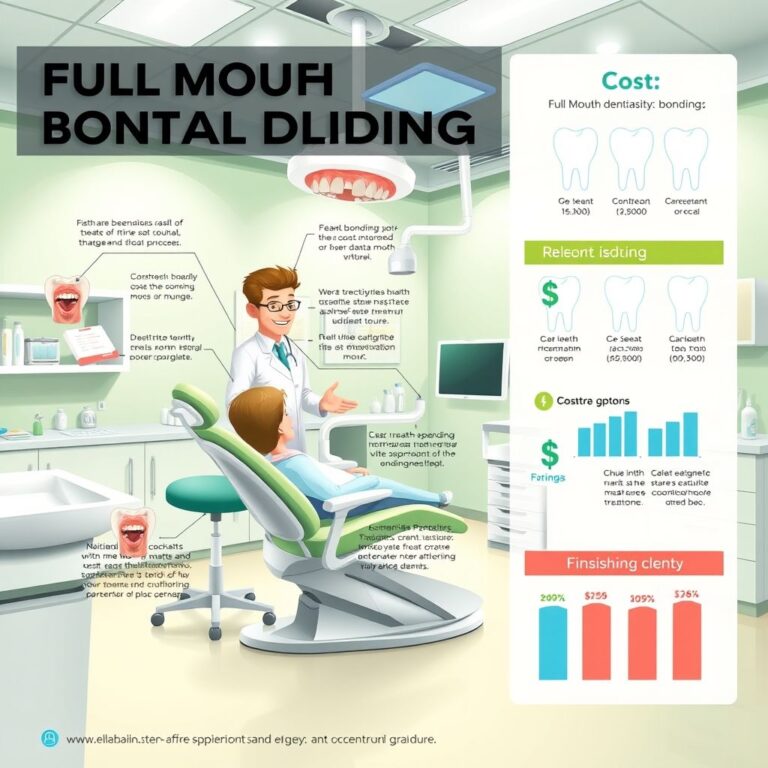fix chipped tooth cost dental bonding
A chipped tooth can be more than just a cosmetic issue—it can lead to sensitivity, pain, and further dental damage if left untreated. Fortunately, modern dentistry offers several solutions, with dental bonding being one of the most affordable and least invasive options.
But how much does it cost to fix a chipped tooth with bonding? What does the procedure involve? And how long will the results last? This comprehensive guide answers all your questions, providing expert insights, cost breakdowns, and aftercare tips to help you make an informed decision.

2. What Is a Chipped Tooth?
A chipped tooth occurs when a piece of the tooth enamel breaks off due to trauma, decay, or biting on hard objects. Depending on the severity, the chip can affect only the enamel or extend into the dentin or pulp, causing pain and sensitivity.
Common Types of Tooth Chips:
-
Craze Lines (superficial cracks in enamel)
-
Minor Chips (small enamel breaks, no pain)
-
Moderate Chips (exposed dentin, mild sensitivity)
-
Severe Chips (exposed pulp, sharp pain)
3. Causes of a Chipped Tooth
Several factors can lead to a chipped tooth, including:
-
Trauma (sports injuries, falls, accidents)
-
Biting Hard Foods (ice, nuts, hard candy)
-
Teeth Grinding (Bruxism)
-
Tooth Decay (weakens enamel)
-
Large Fillings (compromised tooth structure)
4. Symptoms of a Chipped Tooth
-
Visible crack or missing tooth fragment
-
Rough or jagged edge on the tooth
-
Tooth sensitivity to hot, cold, or sweet foods
-
Pain when chewing
-
Tongue irritation from sharp edges
5. Treatment Options for a Chipped Tooth
Depending on the severity, dentists may recommend:
| Treatment | Best For | Cost Range | Durability |
|---|---|---|---|
| Dental Bonding | Small to moderate chips | $100 – $600 | 3-10 years |
| Veneers | Larger chips, cosmetic fix | $800 – $2,500 | 10-15 years |
| Dental Crowns | Severe damage | $800 – $3,000 | 10+ years |
| Enamel Shaping | Minor imperfections | $50 – $300 | Permanent |
6. What Is Dental Bonding?
Dental bonding is a cosmetic procedure where a tooth-colored composite resin is applied to the chipped area, shaped, and hardened with a UV light. It blends seamlessly with your natural teeth, restoring appearance and function.
7. How Does Dental Bonding Work?
-
Consultation – Dentist examines the chip.
-
Tooth Preparation – Surface is cleaned and slightly etched.
-
Bonding Application – Resin is applied and molded.
-
Curing – A UV light hardens the resin.
-
Polishing – Final shaping for a natural look.
The entire process takes 30-60 minutes per tooth.
8. Pros and Cons of Dental Bonding
✅ Pros:
-
Affordable (cheaper than veneers/crowns)
-
Minimally Invasive (no enamel removal)
-
Quick Procedure (done in one visit)
-
Natural Appearance
❌ Cons:
-
Less Durable than crowns/veneers
-
Stains Over Time (coffee, smoking)
-
Not Ideal for Large Chips
9. How Much Does Dental Bonding Cost?
The average cost of dental bonding ranges from $100 to $600 per tooth, depending on:
-
Location (urban vs. rural clinics)
-
Dentist’s Experience
-
Extent of Damage
-
Additional Procedures (e.g., anesthesia)
Cost Comparison Table
| Country | Average Cost (Per Tooth) |
|---|---|
| USA | $300 – $600 |
| UK | £150 – £400 |
| Canada | CAD 200 – CAD 500 |
| Australia | AUD 250 – AUD 600 |
| India | ₹3,000 – ₹8,000 |
10. Does Insurance Cover Dental Bonding?
-
Cosmetic Bonding – Usually not covered.
-
Medically Necessary Bonding – May be partially covered if the chip affects function.
-
Check Your Plan – Some insurers offer partial reimbursement.
11. How Long Does Dental Bonding Last?
With proper care, bonding lasts 3-10 years. Factors affecting longevity:
-
Oral hygiene
-
Avoiding hard foods
-
Teeth grinding (bruxism)
12. How to Care for a Bonded Tooth
-
Avoid chewing ice/hard candy
-
Don’t bite nails or pens
-
Limit staining foods (coffee, red wine)
-
Use a soft-bristled toothbrush
-
Wear a nightguard if you grind teeth
13. Alternatives to Dental Bonding
-
Veneers (better for large chips)
-
Crowns (for severely damaged teeth)
-
Enameloplasty (reshaping natural enamel)
14. FAQs About Fixing a Chipped Tooth
Q: Can a chipped tooth heal on its own?
A: No, enamel doesn’t regenerate. Treatment is needed.
Q: Is dental bonding painful?
A: No anesthesia is usually required unless decay is present.
Q: Can I whiten bonded teeth?
A: No, the resin doesn’t respond to whitening treatments.
Q: How soon can I eat after bonding?
A: Wait at least 2 hours for the resin to fully set.
15. Conclusion
Fixing a chipped tooth with dental bonding is a quick, affordable, and effective solution for minor to moderate damage. While it’s not as durable as crowns or veneers, proper care can extend its lifespan. Always consult a dentist to determine the best treatment for your specific case.


